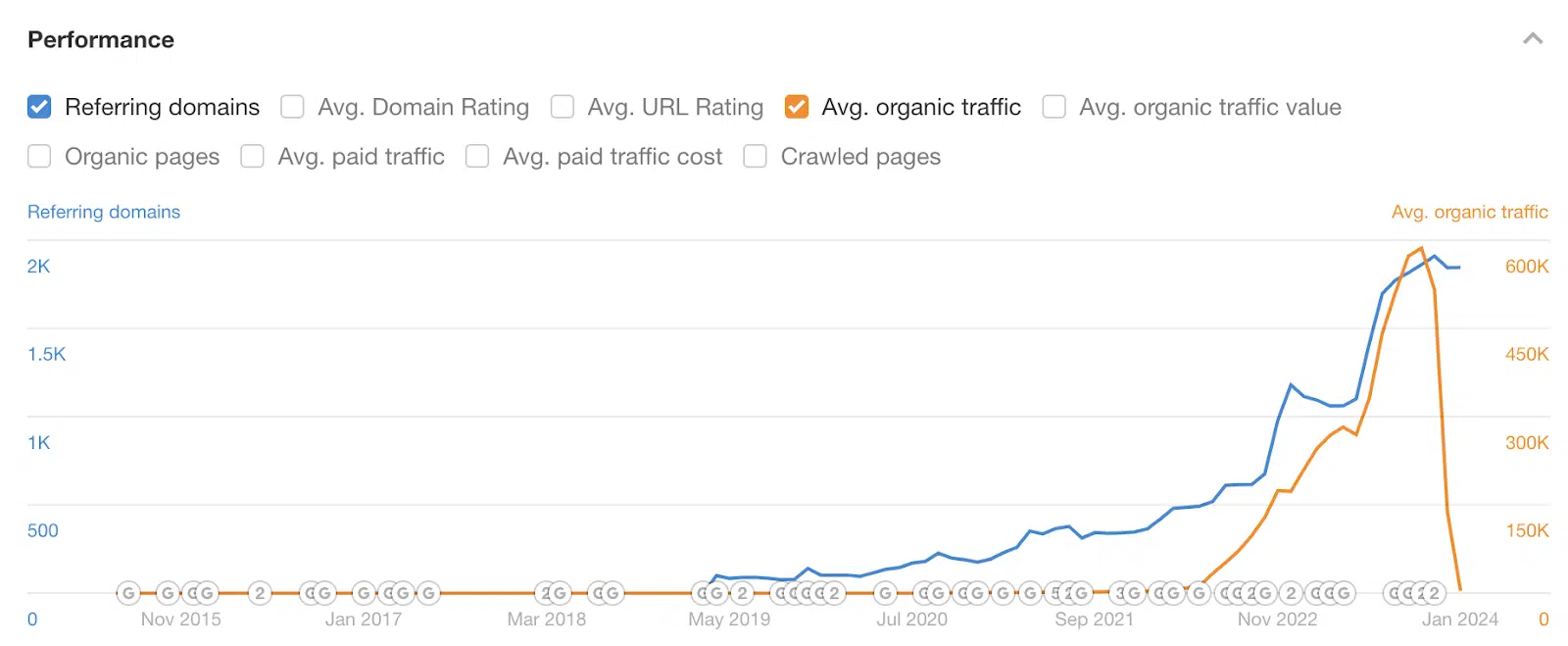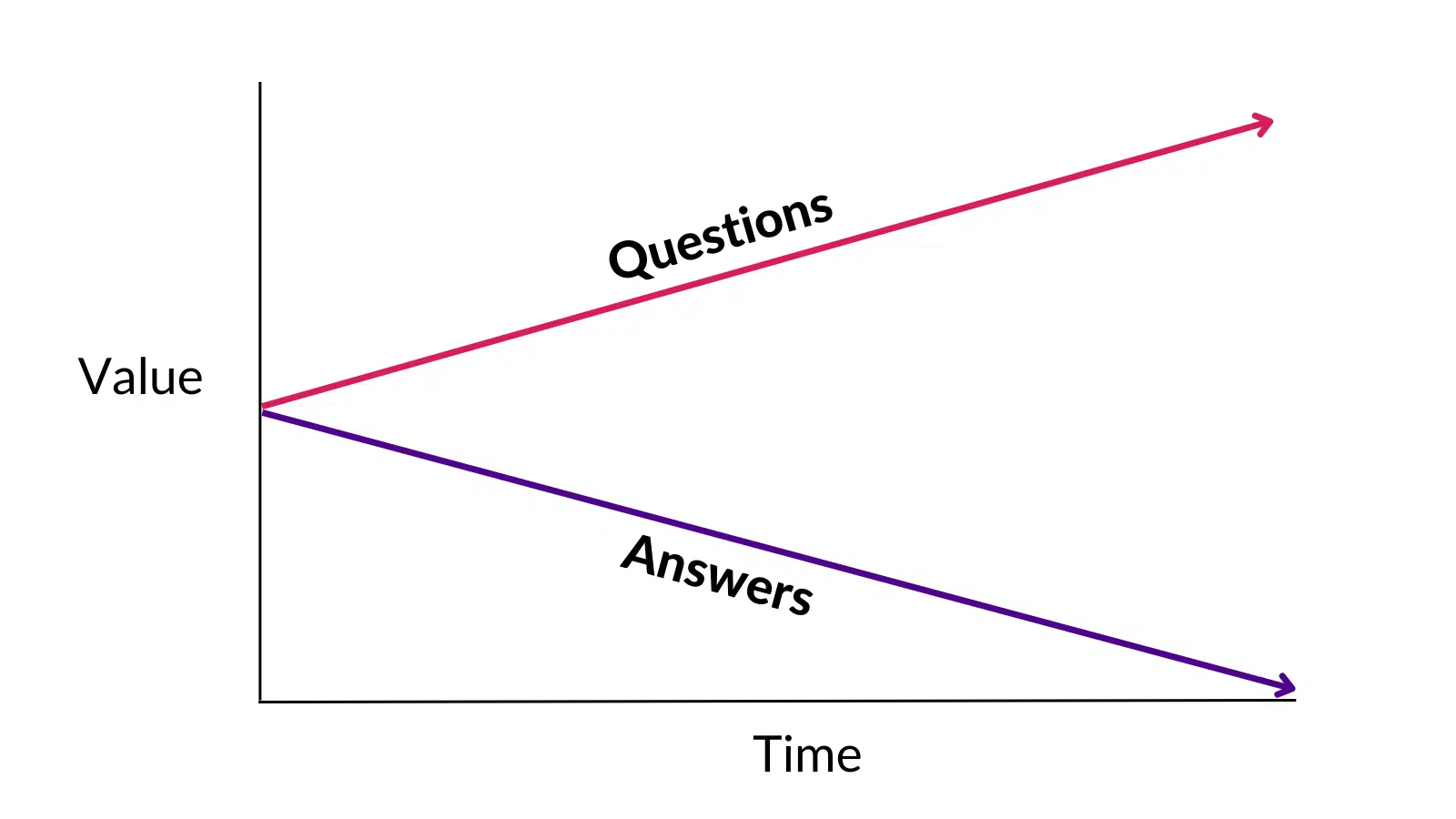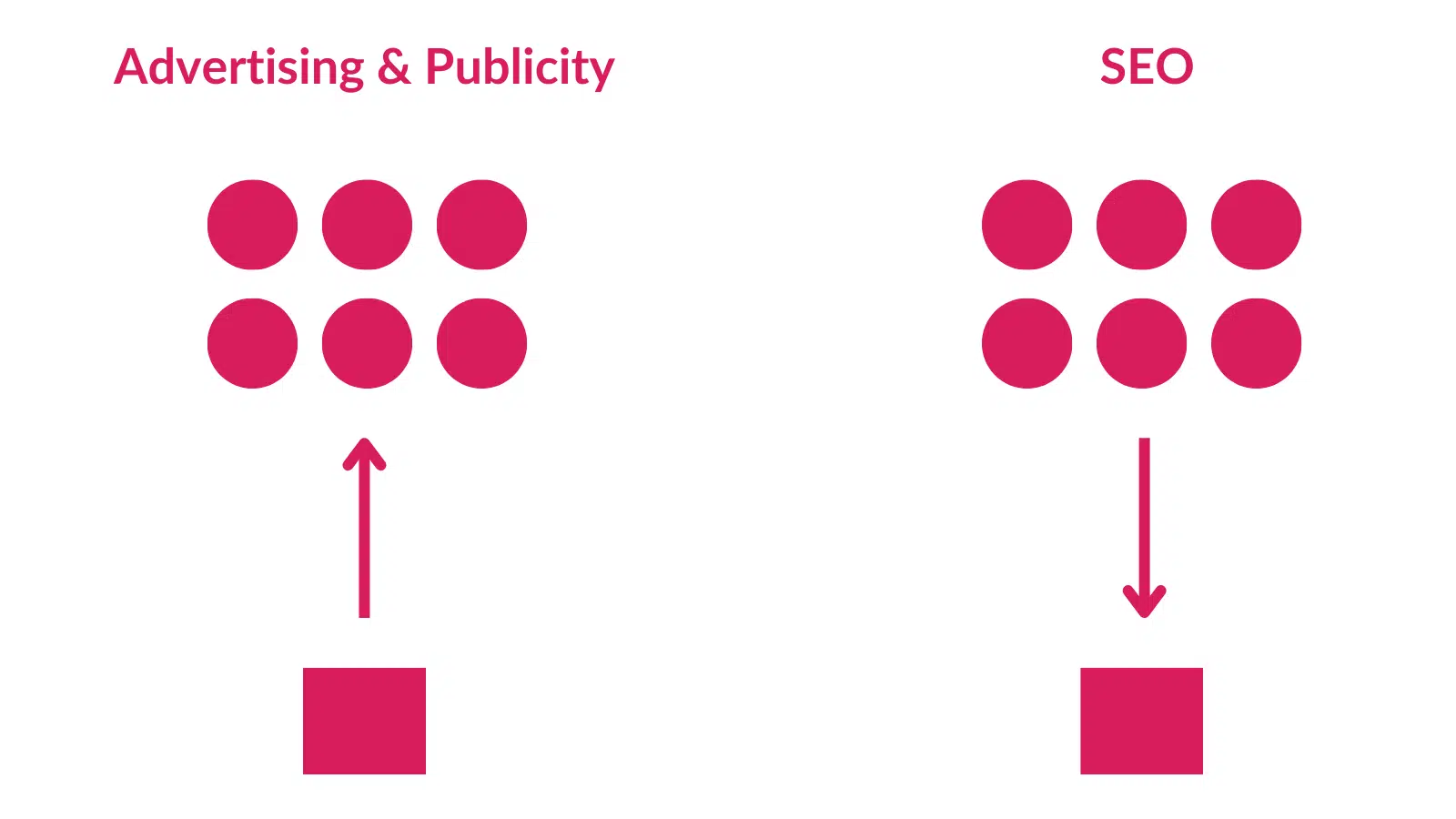It's been a few months since a massive SEO heist went viral online.
You've probably already heard it all.
But what you need to learn is the untold story.
Because it changes everything.
SEO robbery in broad daylight
I won't discuss the older content here, but here are the details in case you missed it.
- SEO has copied your sitemap.
- He then used AI content tools to recreate copies of thousands of pages.
- He received more than 1 million visitors per month.
- He told everyone about it.
- They were subjected to manual action.


As is often the case in the SEO world, some people cheered and many others jeered.
But untold stories are right under our noses.
A story about good and evil.
It's about marketing effectiveness.
Concerning freedom of information.
“This is my ball, so if you don't do what I say, I'll take it home…”
We've all been there as kids.
You're playing ball outside, and when things don't go the ball owner's way, he gets irritated and threatens to stop playing with all of us.
Google is in the lead when it comes to SEO.
This article made headlines when Google “penalized” SEO robbery sites (or their algorithms).
Unchecked AI content at scale is damaging to the web and should not be allowed.
But deep within Google's darkest corners, Google scientists are trying to do just that…
Unleash AI-powered search engines that steal content and spew out unchecked content at scale.
But it's okay because it's their ball.
It's “Do as I say” do not have “Do as I do.”
They can steal content or publish unchecked content at scale, but this divine power is theirs alone. If you don't like that, build your own search engine.
But that argument may not stand up to scrutiny.
Digging deeper: Changing Google's approach to AI content: A closer look
OpenAI, litigation, information
OpenAI, the company behind ChatGPT, is facing legal action as people claim its models were trained on other people's content.
Google openly builds its search engine in much the same way.
Here we can tell the untold story of SEO heist.
And it all starts with Thomas Jefferson.
I want information to be free.
In 2004, the late Aaron Schwartz wrote a blog post about how nature wants information to be free.
In the article, he refers to a letter written by Thomas Jefferson and says:
“No one seriously disputes that real estate is a good idea, but it's strange to suggest that:” idea It should be an asset. Nature clearly desires freedom of ideas. You can keep your ideas to yourself, but when you share them, everyone can instantly get them. And once it happens, it's hard to get rid of it even if you want to.
Ideas, like air, cannot be contained or stored.
And no matter how many people share it, the idea will never fade. Listening to your ideas allows me to gain knowledge without compromising any of your ideas. Similarly, if I use your candle to light mine, I can get light without darkening you.
Like fire, ideas can engulf the earth without reducing its density.
Therefore, inventions cannot become property. Sure, we could give exclusive profit rights to inventors, perhaps to encourage the invention of new and useful things, but this is our choice. If we decide not to do so, no one can object. ”
This is not a direct translation of Jefferson's letter. It was translated by Schwartz from Old English into modern languages.
Almost 20 years later, Google, OpenAI, and others seem to have agreed that ideas and information are free and should not be hoarded.
Language models and search engines can access and use your content to create something new, without damaging what you've created.
But is this true?
That will be for the courts to decide, but we will proceed as if the courts would.
Get the daily newsletter search that marketers rely on.
Information is now a commodity
Education leader Tony Wagner says information is now a commodity.
Once upon a time, we were all rewarded for our knowledge. Our certification and school system is based on proving what you know.
The web has made knowledge easily accessible.
But you were rewarded for sharing this knowledge with others.
You got traffic and search engines gave you knowledge.
AI makes information instantly available and usable.
But that's not what you know. If you have that knowledge, you can do it.
And this goes back to the great SEO heist.
Just because you can do something doesn't mean you should.
Marketing effectiveness must be given top priority
SEO grand heists were nothing new.
Websites have been using cheap writers with no subject matter knowledge for years, all borrowing from other content to create bigger and better versions of past articles.
All the heist did was take the writers out of the equation.
But was it worth it?
i don't think so.
The content wasn't aligned with the brand's business model.
The site whose sitemap was stolen was an Excel training company. The content was important to them and relevant to their business.
But in reality, we are delaying the inevitable. AI search engines are coming to you for your information and traffic.
All paths lead to the same logical conclusion.
Content is no longer a delimiter.
Let's dig deeper: How to prevent AI from stealing your content
Knowing is outdated


In A More Beautiful Question by Warren Berger, first published in 2014, the author states that questions are now more powerful than answers.
Questions lead to innovation.
It was inevitable that human information would be stored in databases and made accessible to everyone. There is so much information to remember, and our brains are really bad at remembering things anyway.
And this is where we are heading now.
A world where information is obtained from databases. And computers tell us the best information gleaned from the best resources.
But for everyone who is ignored, there is a huge benefit.
Get information faster, act faster
While many people would be upset about the loss of traffic, AI actually reduces decision fatigue.
Just as we've relied on Google for years, AI and AI-powered search engines will reduce decision fatigue and make us trust what Google has to say.
Top search results are likely to be information with some ads and organic referrals.
“Hey Google, I need to book a hotel in London. I'll leave it 5 stars, but find one near Covent Garden for less than £500 a night.”
“I've found three options here.”
“Okay, I like the first one. Book a room for Thursday.”
“Your room has been booked. An email has been sent to your inbox with the details.”
Is this scenario a dream? I'm afraid not.
You don't need to read a blog listing 15 hotels and their various pros and cons.
And this will be a new battle.
Battles referenced by AI.
The battle over EEAT.
The fight to become a brand.
Brands are the future of search


The great SEO thief simply pointed out the problem.
That we no longer own the information.
The future lies in faster decision-making powered by AI.
The future is about acting and building.
The future is about us asking better questions that lead to innovation.
This is why I've been saying for a while that brand mentions are the future of backlinks and publicity is the new SEO.
Making your presence known to LLM and AI-powered search engines is done in the same way that making your presence known to the general public through brand marketing.
Creative advertising and promotion are the tools for the future of SEO.
If you want to rank, you need to be discovered, recommended, and referred to. you need to be known.
And that's the important point here.
All the great SEO heists did was remind us all.
Content through search will no longer be a viable strategy for many businesses.
That's not to say content is dead.
There's always a need for new content that gets noticed, read, and loved.
We are a type of carnivore who enjoys content.
However, the way content is used in SEO will change.
What does that future look like?
I think that is also part of innovation.
I don't know because I'm not there yet.
But for me, bring it on.
SEO changes are long overdue.
Let's dig deeper: Modern SEO: Packaging your brand and marketing for Google
The opinions expressed in this article are those of the guest author and not necessarily those of Search Engine Land. Staff authors are listed here.


